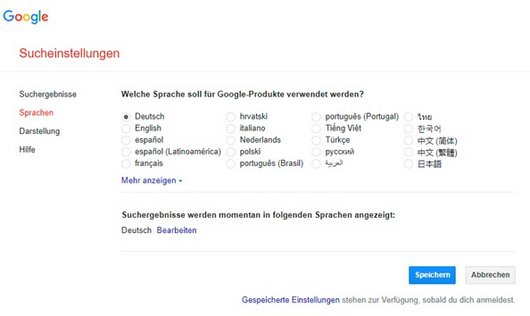Find out
Advanced functions can be used to refine searches and help to combine different search strategies at the same time. Usually the combination of several strategies allows improving results. The following are examples of advanced searches:
Boolean operators
These are logical operators that allow formulating complex searches. Their syntax can differ from one search engine to another; therefore it is important to read the documentation of the search engine used. Boolean operators are normally used in capitals for clarity, but this is not imperative. The most commonly used Boolean operators in search engines are:
Operator | Function | Example | Explanation |
|---|---|---|---|
| AND (+) | Logical conjunction | translation AND teaching | Finds web pages about translation and teaching |
| OR | Logical disjunction | teaching translation OR teaching interpretation | Finds web pages about teaching translation or teaching interpretation |
| NOT (-) | Logical negation | translation teaching NOT interpreting | Finds web pages about translation teaching and excluding pages dealing with interpreting |
| NEAR | Proximity | Translation teaching NEAR university | Finds web pages about teaching translation in relation to university |
These operators can also be combined into one complex search query: If you for example search the following string: eLearning NEAR translation AND localisation -"blended learning", your results will show the term eLearning in the context of translation and localisation and will exclude all content related to blended learning.
Hint: Make sure when using + and – symbols that you are not leaving empty spaces between the symbol and the word you are looking for. For example, mouse – computer would return results containing both mouse and computer while mouse –computer will only contain results dealing with natural mice.
Wildcards or placeholders
Wildcards or placeholders often realised in form of an asterisk (*), percent sign (%) or question mark (?) substitute a character or a string of characters. Using wildcards allows widening the search scope and is similar to a fuzzy search.
Left- and right-truncation is particularly useful when not knowing exactly how a word is written or when looking for different word forms of a certain stem. For example, by typing translat* or *junction some search engines return all words containing the stem translat* (translate, translator, translation, translated, translating …) or the stem *junction (conjunction, disjunction, junction …)
Word substitution is particularly interesting when searching collocations or fixed phrases. Sometimes a translator just has an approximate idea about a collocation or translation of a collocation into a foreign language and wants to verify his/her intuition. In that case a query for “hungry like a *” would return possible gap fillers like bear or wolf.
Quotation marks
Quotation marks are used to find exact phrases that means search terms or words (optionally combined with placeholders) in a specific order.
For example, if you enter "to * a search" in Google, each result will contain these words in their particular order filling the placeholder with matching words (e.g. to conduct a search, to perform a search, to restrict a search, to begin a search, to initiate a search). This is particularly useful for searching collocations in a foreign language.
Why is this information important for translators and translation teachers?
To know how to use the advanced functions of search engines is very useful for translation and translation teachers, because with few simple operators and rules they can considerably improve the results, find more accurate information and terminology and also speed up the retrieval process.


